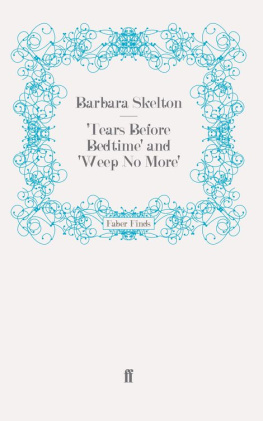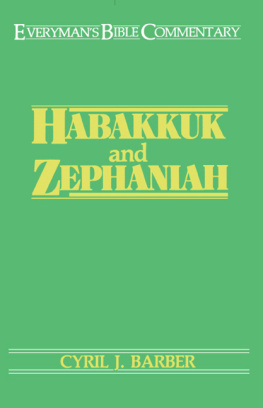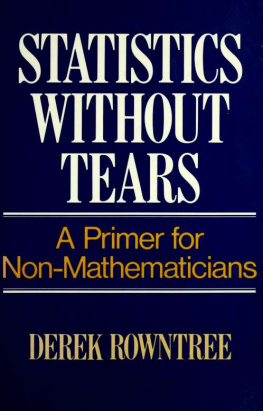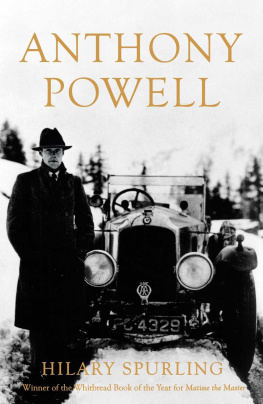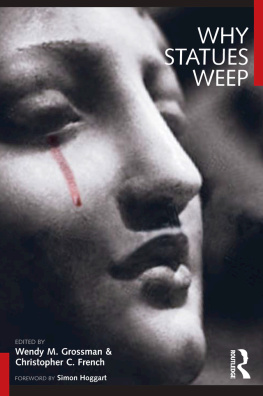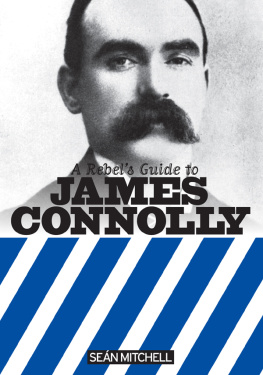Introduction
My first choice of title, WhereDustLiesDeep, was taken from a Philip Larkin verse, My past has gone to bed, upstairs in clockless rooms, my past is fast asleep, but hindsight reallumes, in my ruminant head, the days where dust lies deep. But this was rejected due to a certain amount of friendly mockery.
Finding an apt and original title is a regular bane. Some writers give the impression that they do not even try. There are those who believe that a selling title should contain the word love. Jean Rhys and Franoise Sagan seemed to be blessed with inspiration. In his introduction to TheEveningColonnade, Cyril Connolly wrote that some writers have no problem. Their title descends in tongues of flame. If a quotation, it should stand on its own, nor should it be French or Latin nor contain words which nobody knows.
One reader, after TearsBeforeBedtime was published in 1987, wrote to say that their cleaner, assuming it to be a childrens book, had carefully laid it to rest on a nursery shelf! The second volume had to correspond. Reviewing WeepNoMore, the writer Anthony Powell stated: One feels Balzac is the novelist who would best do justice to all this in fiction form. It is to be hoped that both volumes will be put together in one, perhaps in paperback, which is really required for the best appreciation of the story.
Here it is a combined version which has enabled me to correct numerous misprints and contorted sentences that appeared in the hardback. In my view, an autobiography should be utterly frank. Otherwise what is its point? Even so, some reviewers turned out to be strangely prudish. Not so Anthony Lambton in the LiteraryReview: The writer has two remarkable literary qualities, she tells the truth and has no illusions about herself or her lovers.
One lady reviewer described Tears as giving a vivid account of rackety wartime Bohemia and Caf Society. More recently, five years after first publication, Julie Burchill has written in the Spectator: The best autobiography I have ever read is Barbara Skeltons TearsBeforeBedtime, a brilliantly funny account of her life with Cyril Connolly. She was also married to George Weidenfeld and dallied with King Farouk. From these quotes, new readers will have some idea of what they are in for.
I have, in fact, been criticised for recycling bits of diary that should, for the sake of form, have been incorporated into the narrative. In my view, this would have lessened the realism of wartime London. What prompted me to write the books? Well, in spite of much faulty grammar and hopeless punctuation, and although not a natural writer some sentences being slogged over, endlessly rewritten and cut, in order not to bore the reader I happen to enjoy writing. Do I have second thoughts on any part of them? No. To what extent has the writing been cathartic? Not at all. What do I make of the life presented herein? I leave that for readers to answer. What qualities do I value in others? Honesty, generosity, courage and a capability for friendship, meaning the capability of putting yourself out for a friend in distress, when your own life is running smoothly. Most people are too selfish. The most degrading fault, to my mind, is hypocrisy wanting to be in every camp in order to be liked. To what extent has the course of my life been determined by chance? Most of it. To what extent by design? Alas, none.
In conclusion, I would like to thank all the appreciative reviewers, as well as Peter Quennell who helped me to prune and punctuate the initial pages of the book, Alastair Forbes for corrections at the end, as well as dear Sonia McGuinness who typed and retyped the finished versions and sorted out sheets of typing after I had continuously muddled them up which she did without a word of reproach or ridicule.
B.S. December 1992
PART ONE
TEARS BEFORE BEDTIME
Mummy was a beauty. She had very blue eyes that she liked to compare to the violet hue of hydrangeas. Not that she was particularly vain, but she craved admiration. When she met Daddy, she belonged to a repertory company, the members of which were known as the Gaiety Girls, renowned for looks rather than for talent. Following the trend of other young men of good family in those days, my father courted actresses. When my mother was playing in TheMerryWidow, he called on her backstage, carrying a bouquet. Years later, she complained that was how he had frittered his money away.
My father Eric and his elder brother, Dudley, were child orphans. Their mother had been a direct descendant of the playwright, Sheridan , and at the age of twenty-one each boy came into an inheritance. Eric was a delicate, gentle man with sad brown eyes, slim and well built with beautiful hands and lesattachesfines, I think, is the French expression. An honourable man and witty, he had a very weak character, and no outstanding ability except as a sportsman. A keen cricketer, he had played in the second eleven for Sandhurst.
My mothers instant summing up of any man depended on whether or not she considered him to be a gentleman. Those who did not qualify were either blackguards, cads, or dagos, but mostly they ended up like Daddy being just a poor devil. It is doubtful if Mummy would have been able to define the term gentleman as well as the Regency courtesan, Harriette Wilson, who claimed, A man is a gentleman who has no visible means of gaining a livelihood or because hes a Lord, and the system at Whites Club, the members of which are all choice gentlemen, of course, is and ever has been, never to blackball any man, or one who ties a good knot in his handkerchief, keeps his hands out of his breecher pockets, and says nothin!
I was born on the night of Mummys twenty-sixth birthday and handed over to Nanny, in whose care I remained throughout the formative years. Mummy claimed that she had been such a tiny little thing, it had been a difficult birth, forceps being employed. It is doubtful if she felt much love for her child. My feelings became more extreme. But, towards the end of her life she inspired pity and, according to George Sand, love and pity cant be separated.
In their early married years, my parents lived near Henley in a white clapboard house with a garden sloping down to the river. Then, punting was all the rage. Snaps of Mummy show her tightly belted into long white dresses with velvet laced-up booties, her long hair plaited round her head, as she reclined sensuously under a parasol in a punt, while Daddy, wearing a boater, stands manipulating the pole. While stationed in Barbados he contracted malaria. Then, after a severe heart attack, he was invalided out of the army altogether. For as long as I can remember, my father was considered an invalid, unable to take a very active part in life.
We moved about a good deal, living in rented houses, holidays being spent with my maternal grandparents in one of those four-storied semi-detached houses lining Hythe seafront. Each house had a strip of garden that joined the promenade, and when the sea was rough the waves would sweep over the garden gate and lash against the French windows, depositing giant pebbles in their wake. The kitchen was in the basement, meals being carried up to a sitting cum dining room furnished in heavy Victorian oak. We ate seated round an oak gateleg table, above which hung a frilly red chiffon lampshade, so that, when seen from the promenade, the room resembled the interior of some red light district.
The Marine Parade house was invariably full. My mother had four sisters, Hilda, Elca, Vera and Greta, all married bar Aunty Greta whose flirt had been killed in the First World War. Aunty Greta never left Hythe. She remained with my grandparents all her life, cooking superbly, Mrs Beeton style: a Sunday roast with batter pudding, steak and kidney pies, boiled beef and dumplings, cheese straws with drinks, and sponge cakes for tea being the ritual. All the aunts chainsmoked and spent the mornings studying the racing form. They then made bets with a local tobacconist. Should there be a large gathering, as at Christmas, after dinner, a green baize cloth was spread over the gateleg table; everyone played roulette, poker or

